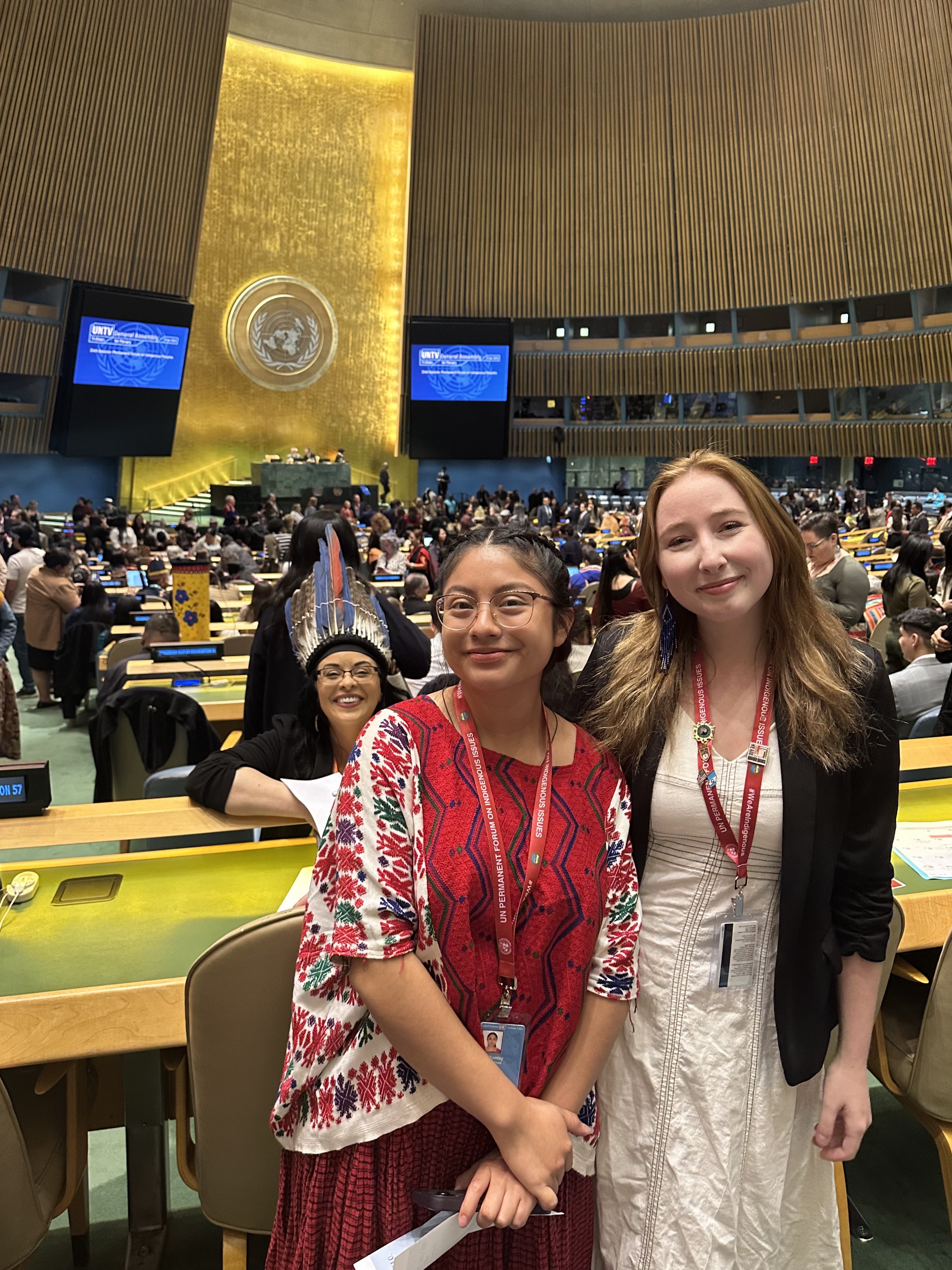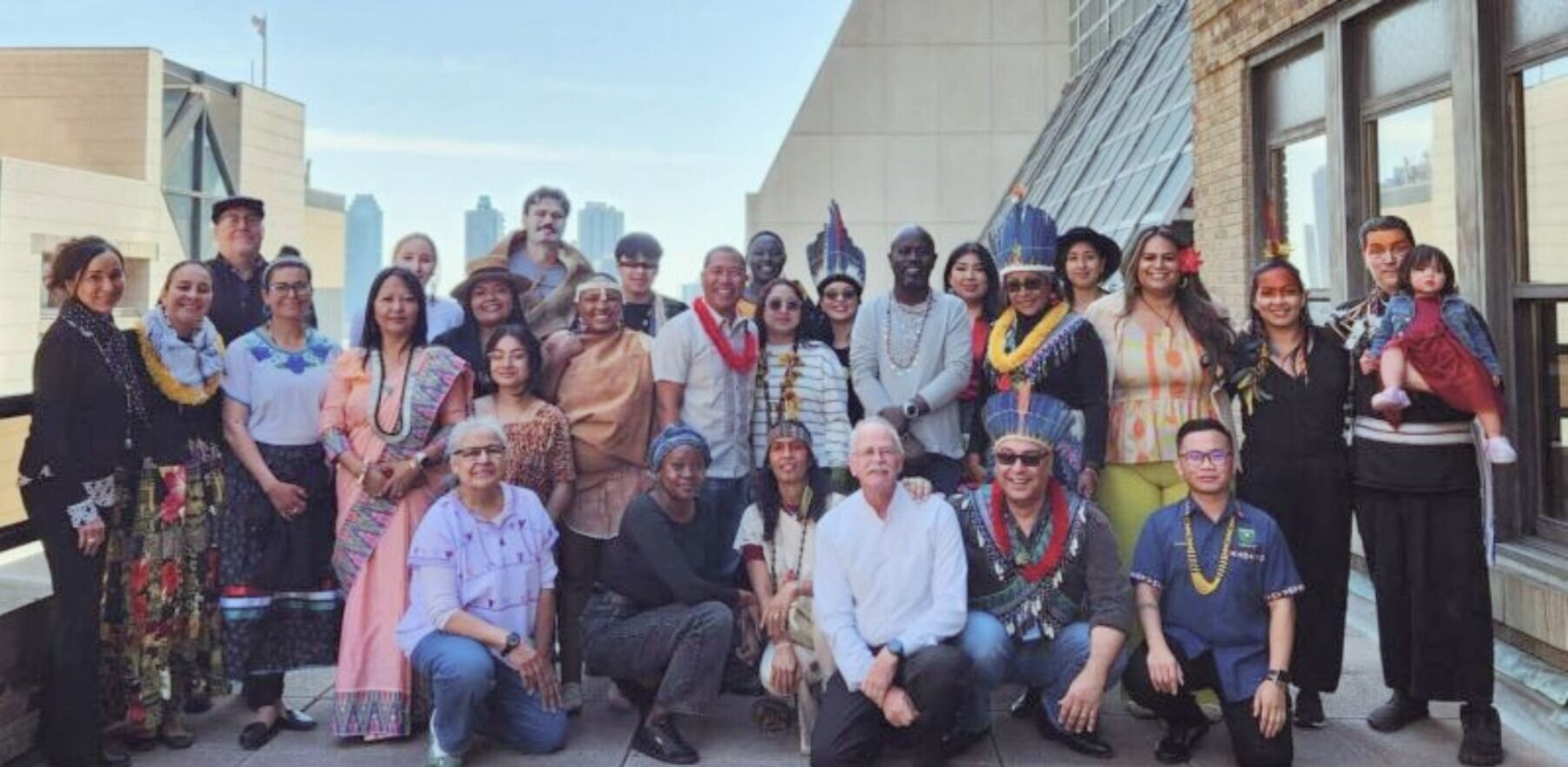For the first time ever, a Lehigh student has been accredited to attend the United Nations Permanent Forum on Indigenous Issues (UNPFII). Isabelle Canadine ‘27, a Global Studies major, travelled to the 24th session of the Permanent Forum as a representative of the organization Tribal Link Foundation, Inc., enabled by the LU/UN Partnership. The Forum was held at UN Headquarters in New York from April 21 to May 2.
The theme of the UNPFII 2025 Session was "Implementing the United Nations Declaration on the Rights of Indigenous Peoples within United Nations Member States and the United Nations system, including identifying good practices and addressing challenges”.

Canadine, from the Seldovia Village Tribe in Alaska, spoke on behalf of Tribal Link Foundation, Inc., a non-profit organization that helps to connect Indigenous Peoples through access to information, resources, and networks, specifically with the United Nations system.
As one who was adopted outside of her tribe due to her biological mother’s struggle with substance abuse and addiction, Canadine spoke passionately about the issue of addiction. “Substance abuse continues to impact Indigenous people at an alarming rate, and it is too often framed as a cultural flaw or individual failure,” she said to the large audience at the UN. Further, she highlighted just how dire the issue is among Indigenous populations in the United States, noting one alarming statistic being that in the year 2017, Indigenous children were overrepresented in drug-related foster care placements, making up 3.23 times their proportion in the general population. This was the highest proportion of any other racial or ethnic group.
Canadine also proposed a corresponding solution to the Forum. She recommended that the United States establish a “permanent and Indigenous specific advisory review panel with the Department of Health and Human Services, specifically tasked with reviewing all national substance use policies and programs that affect Indigenous families, before they are implemented.” She continued with the recommendation that the panel should be made up of predominantly Indigenous health professionals, legal advocates, and community leaders, and would meet quarterly to give feedback to Congress and Indian Health Services.
Over the course of the conference itself, Canadine had the opportunity to connect with many organization leaders and those of Indigenous heritage through the forum-style setup of the conference. Meetings were held in the General Assembly Hall, and those participating in the Forum had ample opportunity to share their experiences and expertise during question-and-answer sessions, as well as dialogues meant to include all participants.
Canadine’s experience at the Forum is a larger reflection of the opportunities made possible through the Lehigh University/United Nations Partnership. Through this collaboration, Lehigh students can engage directly in conversations and contribute their voices to important international discussions on global stages, like the UNPFII. Canadine’s experience in particular has opened the door for other Lehigh students with similar aspirations to attend this conference and similar forums.
